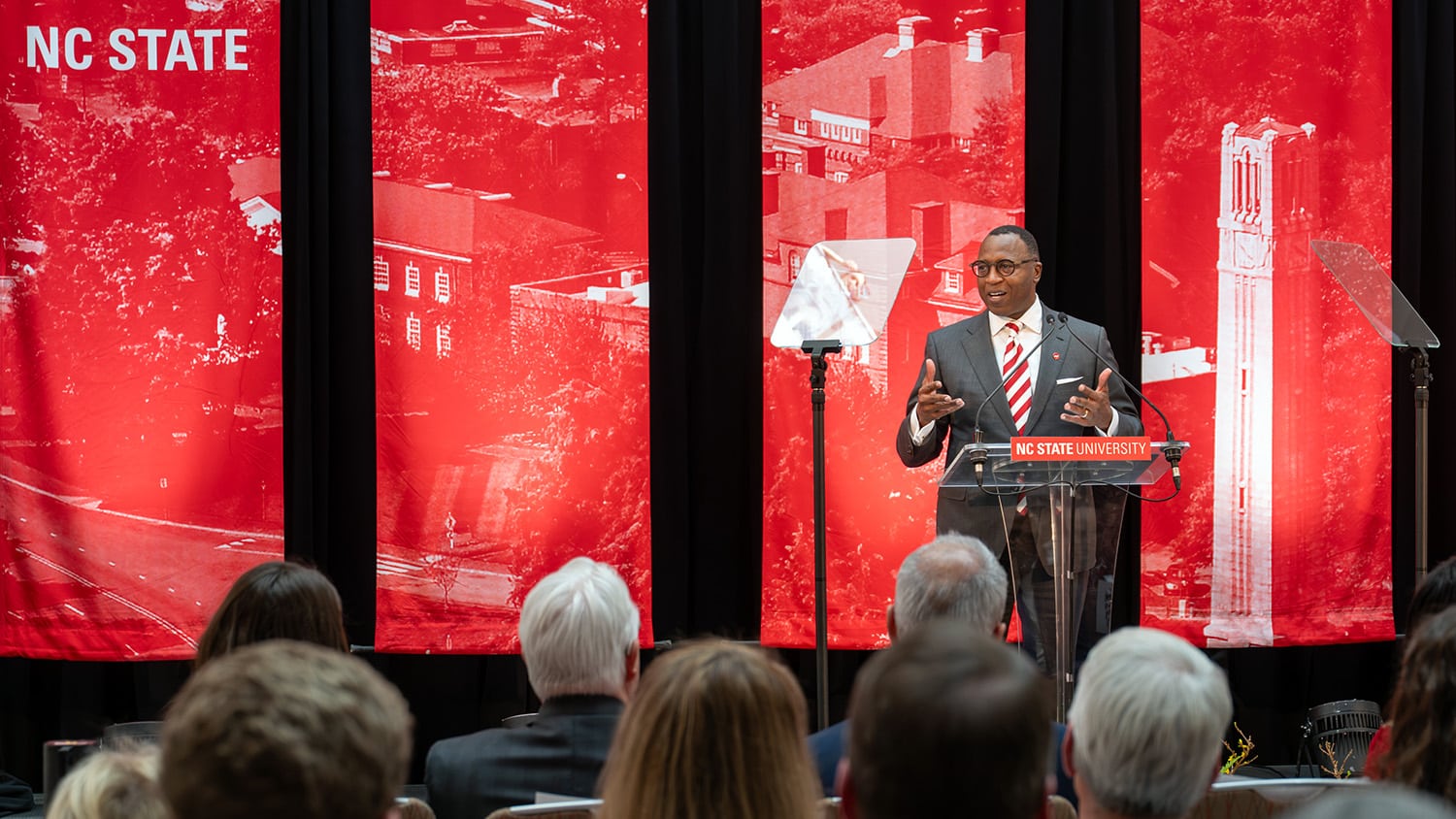Supporting the Colleges That Serve Our Communities
The College of Education’s Belk Center for Community College Leadership and Research is celebrating five years of partnering with North Carolina’s 58 community colleges to fuel success for students and faculty across the state. The collaboration is just getting started.

Stretching across North Carolina, a network of institutions reaches deep into the hearts of our communities, providing outlets for accessible education and economic mobility: the North Carolina Community College System. The dedicated team at the College of Education’s Belk Center for Community College Leadership and Research cultivates partnerships that empower these colleges to shape successful outcomes for their leaders and the students they serve.
The Belk Center, at its core, is all about productive, collaborative partnership . . .
“The Belk Center, at its core, is all about productive, collaborative partnership, with not just the N.C. Community College System and its 58 colleges, but also with other partners supporting the work of community colleges in this state,” said Audrey “AJ” Jaeger, W. Dallas Herring Professor of Community College Education and executive director of the Belk Center.
The College of Education’s doctoral programs in community college education have long prepared students to become leaders in community colleges. As the Belk Center celebrates five years of elevating NC State’s support for these engines of opportunity, the center’s staff, graduate researchers and faculty fellows are living and breathing our university’s land-grant mission to serve people across our state.
Convening Leaders
The Belk Center launched in 2019, but it was born from conversations that stretched back to 2015, when the John M. Belk Endowment awarded a grant to the college to create its Envisioning Excellence for Community College Leadership Program. Under those auspices, the college revamped its doctoral programs — and its annual Dallas Herring Lecture on emerging topics in educational leadership — to focus on the needs of community college leaders, their students and employers.
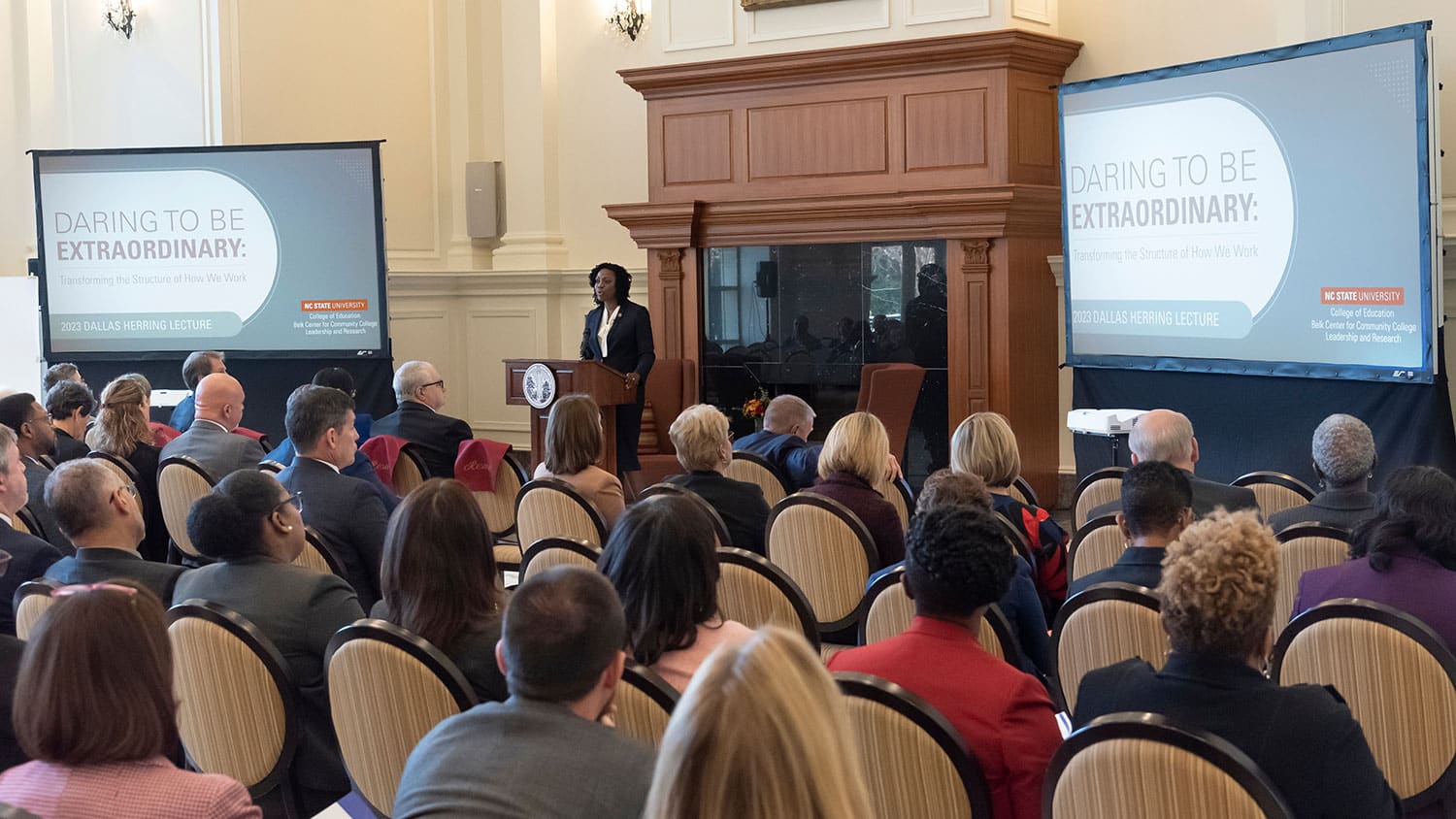
Jaeger and others in the College of Education appreciated that these leaders could benefit from a dedicated source for research and professional development to prepare them for the rigors of their roles. Decision-makers in the college made it their mission to provide it. For funding, they again sought the backing of the Belk Endowment and its chair, MC Belk Pilon; the $10.8 million grant awarded by the endowment enabled the Belk Center’s creation.
Few models existed for exactly what Jaeger and her colleagues aimed to build — a center at a flagship, four-year university geared to support a statewide system of community colleges — but Jaeger knew that “whatever the Belk Center was going to be, it needed to be based upon relationships.” Her team formed an advisory board, packed with experienced community college leaders, to steer discussions that could define their focus.
They built their leadership development resources around what presidents of community colleges told them were their most important issues.
Janet Spriggs, president of Forsyth Technical Community College, joined the Belk Center’s advisory board in 2019. As an educator with over two decades’ experience in community college leadership, a former student of two North Carolina community colleges, and a first-generation college graduate who’d completed her bachelor’s degree through years of part-time learning as a working professional, she knew first-hand the obstacles that community college leaders — and their students — must navigate.
“The most wonderful thing about the Belk Center is they don’t make up their content on their own,” said Spriggs. “They built their leadership development resources around what presidents of community colleges told them were their most important issues. For example, at Forsyth Tech, the concepts of equitable educational access, equitable success and equitable career outcomes for every student are essential.”
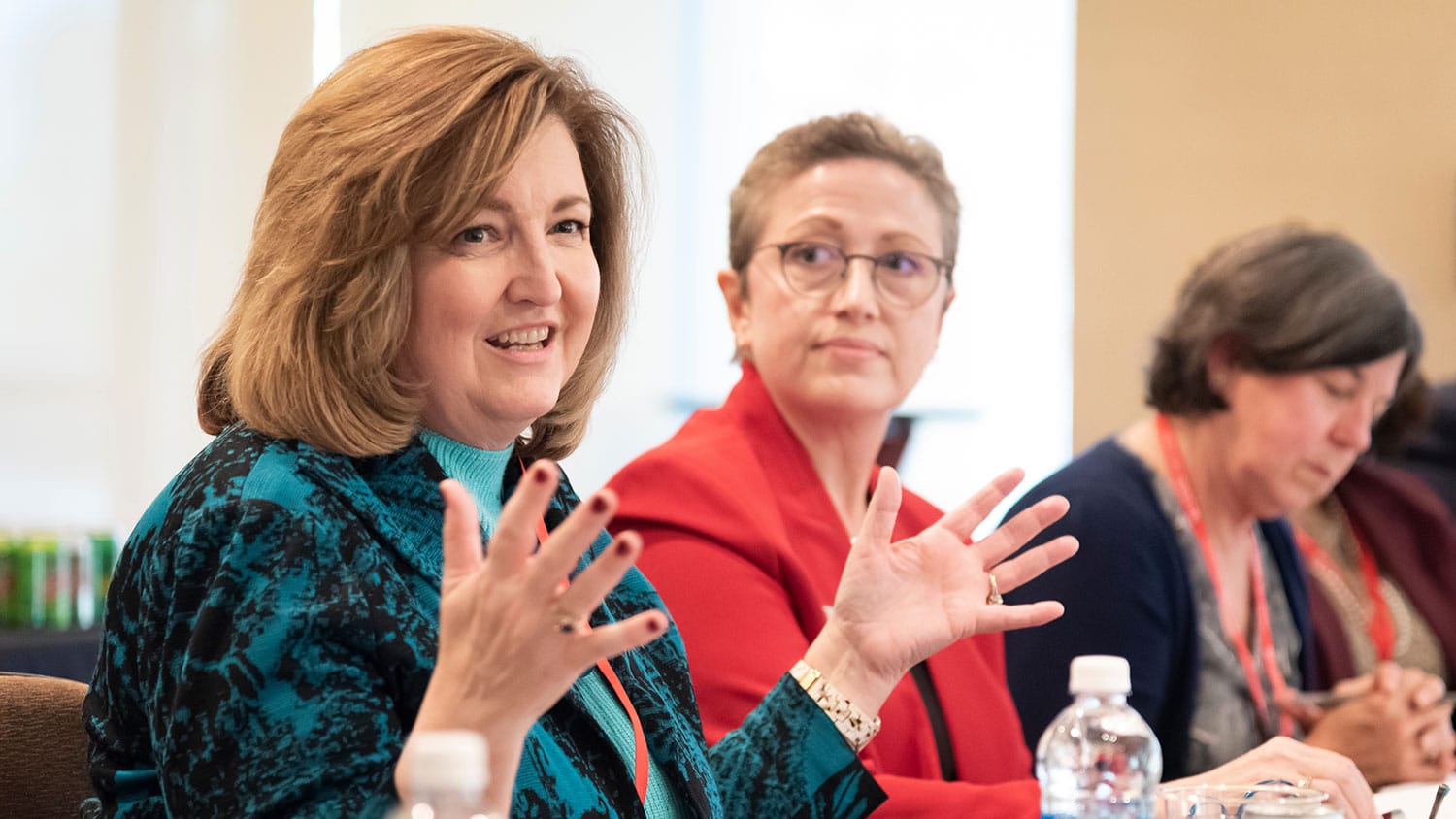
Spriggs was joined on the advisory board by another educator grounded in the challenges of community college leadership. Jeff Cox has been president of the N.C. Community College System for just over a year, but he was president of Wilkes Community College in 2019, when he first got involved with the Belk Center. After years spent educating students in K-12 schools, first as a teacher and later as an assistant principal, principal and superintendent, he became president of Wilkes in 2014.
These resources that have come out of the Presidents’ Academy are allowing new leaders to really hit the ground running and be effective from day one . . .
There, he grappled with the steep learning curve confronting new presidents, who must work quickly to grasp — and anticipate — the interests of business and community stakeholders, and of local learners of all ages and backgrounds.
“Having gone through that, I recognized we really needed to develop a much more robust onboarding and professional development program for new presidents,” said Cox.
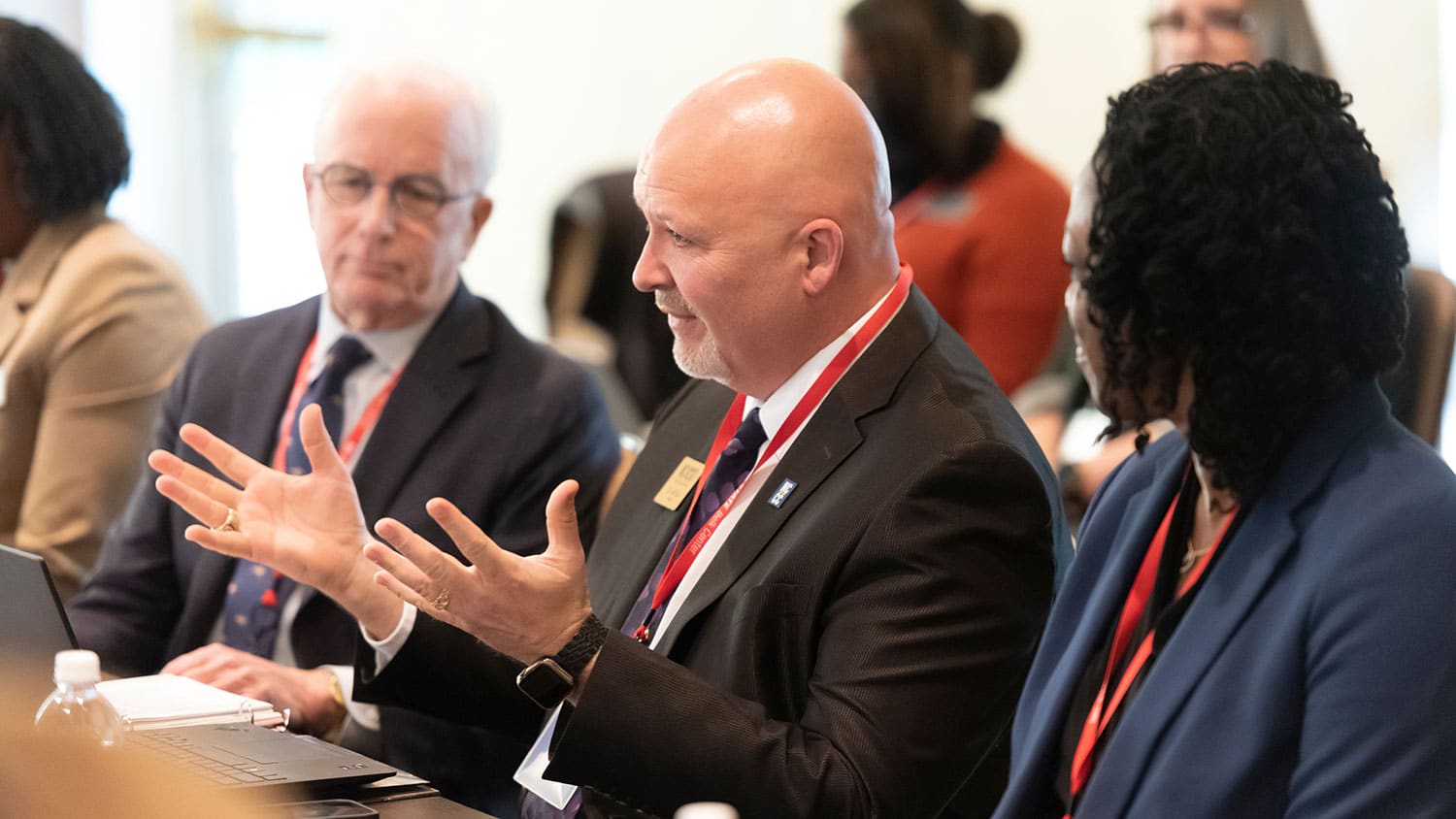
From the early efforts of the advisory board, the Presidents’ Academy emerged. This program, led by the Belk Center in partnership with the North Carolina Association of Community College Presidents, centers on an annual series of “Critical Conversations” with community college leaders around the issues most vital to their institutions. These dialogues foster a wealth of research and leadership development programming made accessible to leaders and their teams through the Belk Center.
“These resources that have come out of the Presidents’ Academy are allowing new leaders to really hit the ground running and be effective from day one, instead of having to take two years to figure everything out,” said Cox.
Creating Tools
The Belk Center team sought to create additional tools that could further equip college leaders to shape success at their institutions. One pressing challenge involved the need for a statewide framework of professional development for community college faculty, who have a large hand in influencing the student experience.
“Since community college students don’t necessarily get all the extracurricular activities of a four-year university, and 90% of their college experience is in the classroom, their relationship with faculty is crucial,” said Cox. “There’s a robust infrastructure across the state’s K-12 system for professional development. But my observation coming into the community college system is that we didn’t have that same infrastructure, and it’s often up to each college to figure out what they want to do for professional development.”
The need to prepare faculty with the skills to push through barriers and reach students on their own terms became even more pronounced in 2020, as the world entered a pandemic and learning moved to a digital environment. So the Belk Center, in partnership with national nonprofit Achieving the Dream and the N.C. Student Success Center, set out to identify the specific faculty development needs of North Carolina’s community colleges.
It’s a human-centered approach that also gives students a voice through the educators who serve them on the ground.
“We did six deep-dive case studies, at a mix of urban and rural colleges with differing student populations — some with more dual-enrollment high school students, others with more adult learners,” explained Jaeger. “We learned what worked to encourage faculty, incentivize faculty and provide professional development to lift up teaching and learning practices that connect with students.”
The Belk Center leveraged these efforts to create four regional Teaching and Learning Hubs to engage educators in all 58 North Carolina community colleges, connecting them with resources and evidence-based teaching strategies to meet the needs of local learners. The hubs, in their three years of operation, have enhanced learning for around 100,000 students statewide through the faculty they’ve reached.
“It’s a human-centered approach that also gives students a voice through the educators who serve them on the ground,” said Spriggs.
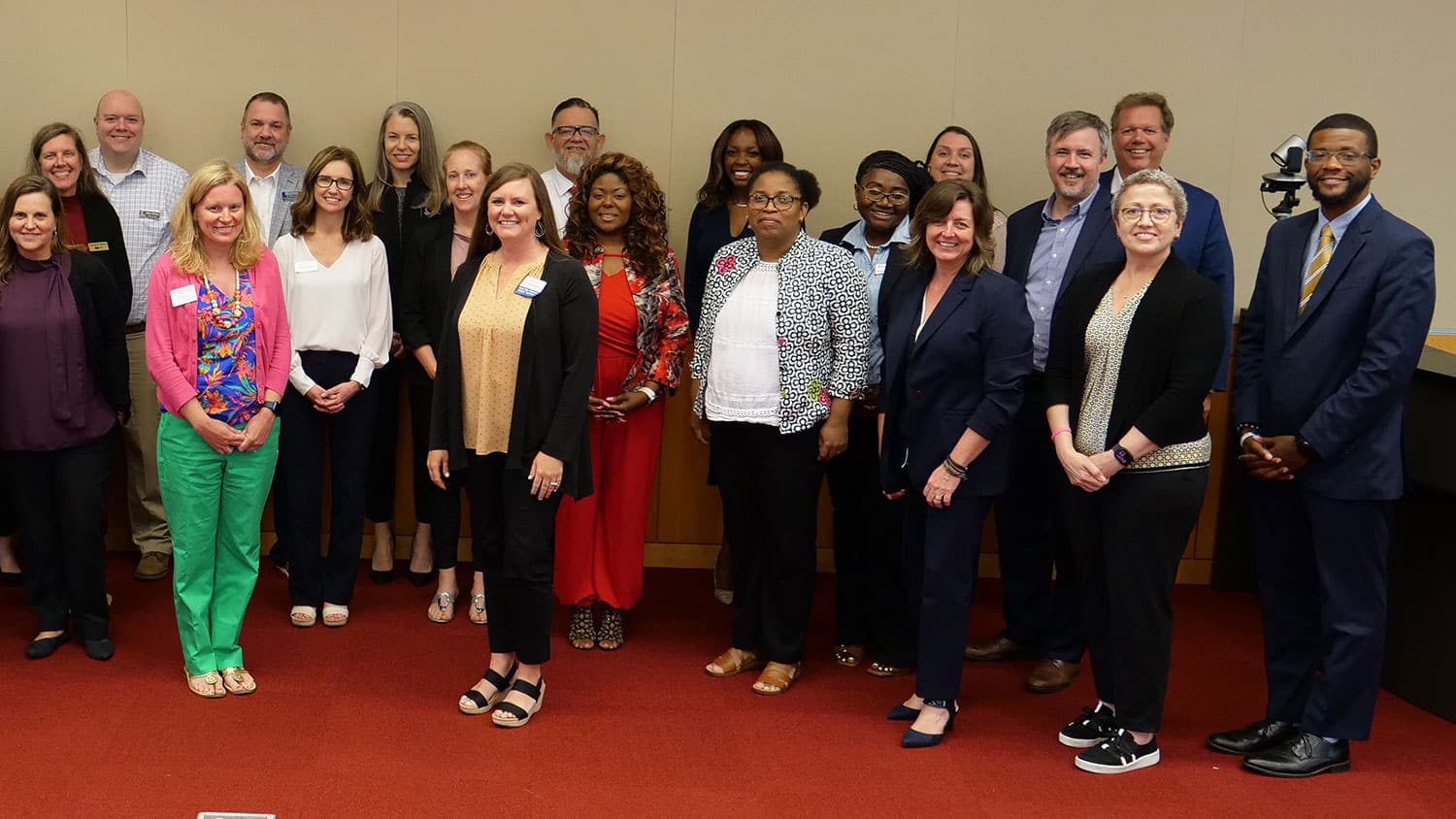
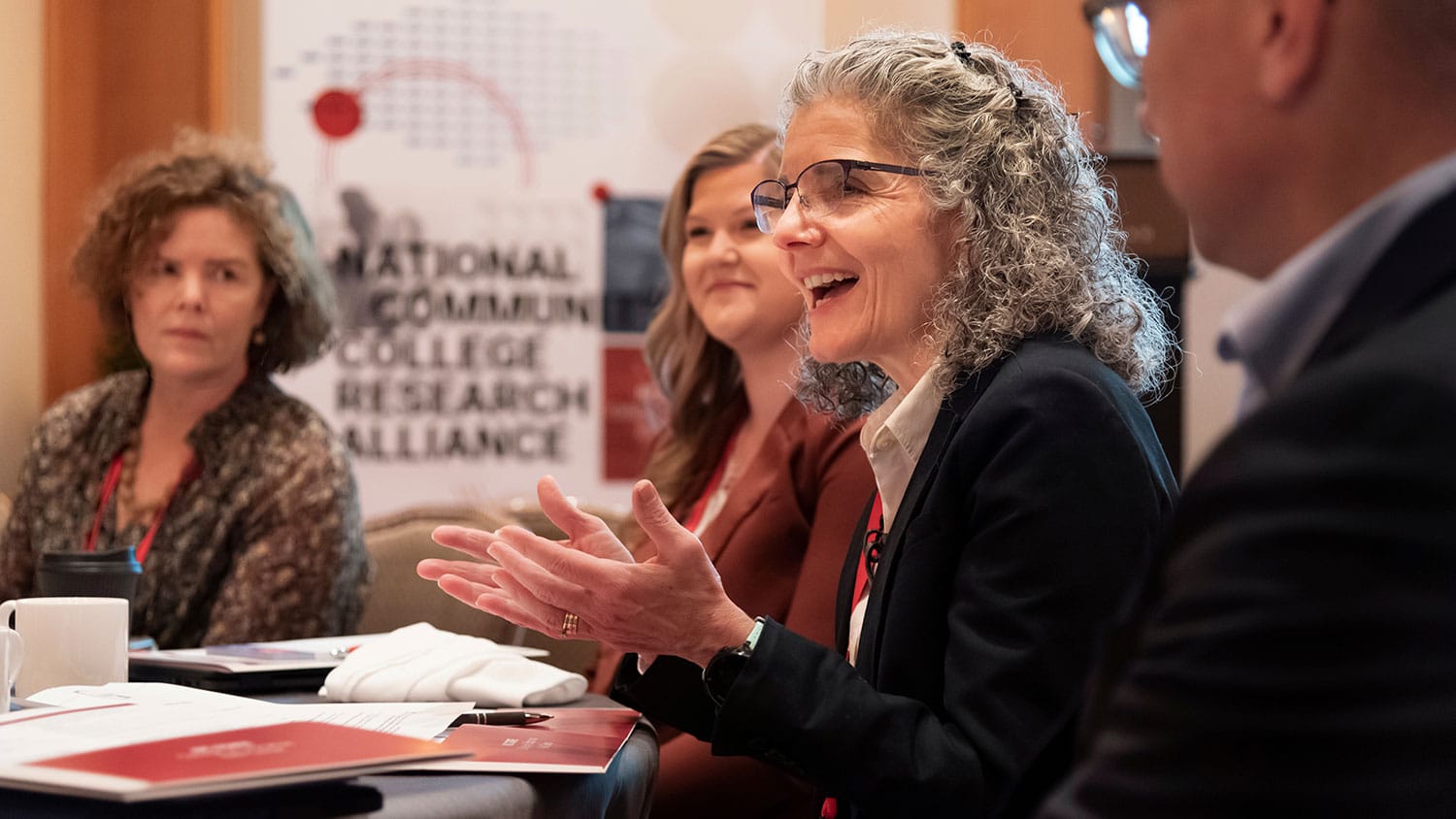
The center and its partners continued collaborating on initiatives to emphasize student voices — such as the NC Reconnect program, launched by the Belk Endowment in 2021. This program engages adult learners who started but did not finish their postsecondary education, helping them navigate re-enrollment and re-entry while building a plan to complete a credential or degree.
Belk Center researchers first gathered data from five pilot colleges on the barriers adult learners face while juggling career, family responsibilities and their education. They then held focus groups with college leaders, employees, students and former students to gain insight into the factors that stand between adult learners and graduation.
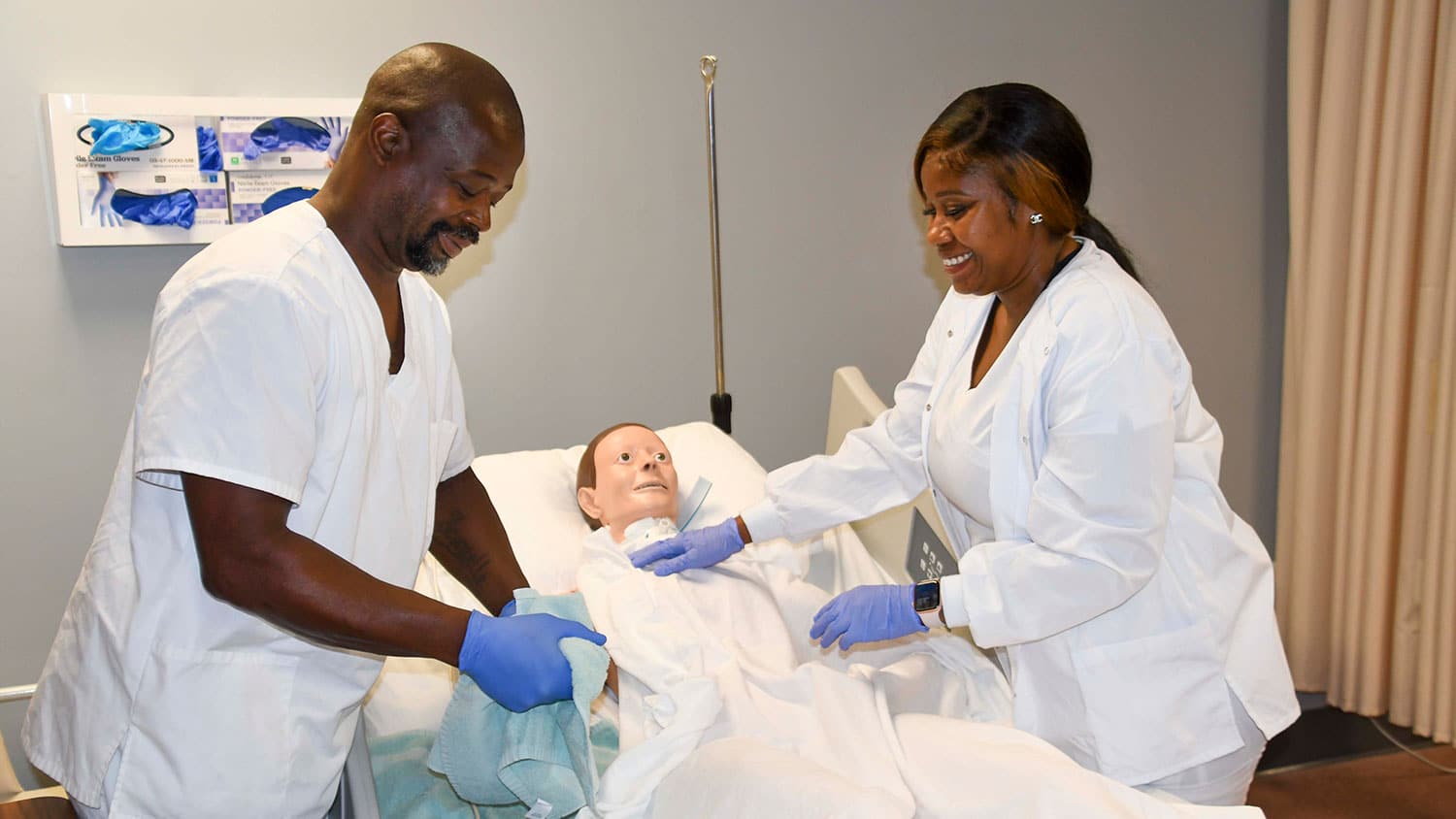
NC Reconnect has grown to include 15 colleges in three cohorts, all of which continue providing data to the program. Spriggs, at Forsyth Tech, became intimately involved with this work when her college joined NC Reconnect’s second cohort of participating schools in 2022.
“We heard from these adult learners that sometimes the challenge is just, ‘life happens,’” she explained. “Their spouse lost a job and they had to work, or someone they were close to got sick and they had to care for them. But we also heard things we weren’t expecting, like our scheduling just wasn’t ideal for their lives, or they didn’t see how a program could lead them to a career.
“Because of NC Reconnect and the data gathered by the Belk Center, Forsyth Tech expanded a lot of our work-based learning opportunities. We support more apprenticeships, we have more learning internships, we have stronger partnerships with local businesses and we support a more diverse range of programs.”
Catalyzing Change
The Belk Center is committed to elevating the voices of those who’ve worked toward positive change across North Carolina’s community colleges. The center’s celebrated Trailblazer Profiles, for instance, honor the groundbreaking contributions of Black, Latinx, Asian and Indigenous leaders.
“The impact of these changemakers is immeasurable,” said Jaeger. “Their mentorship lives on forever.”
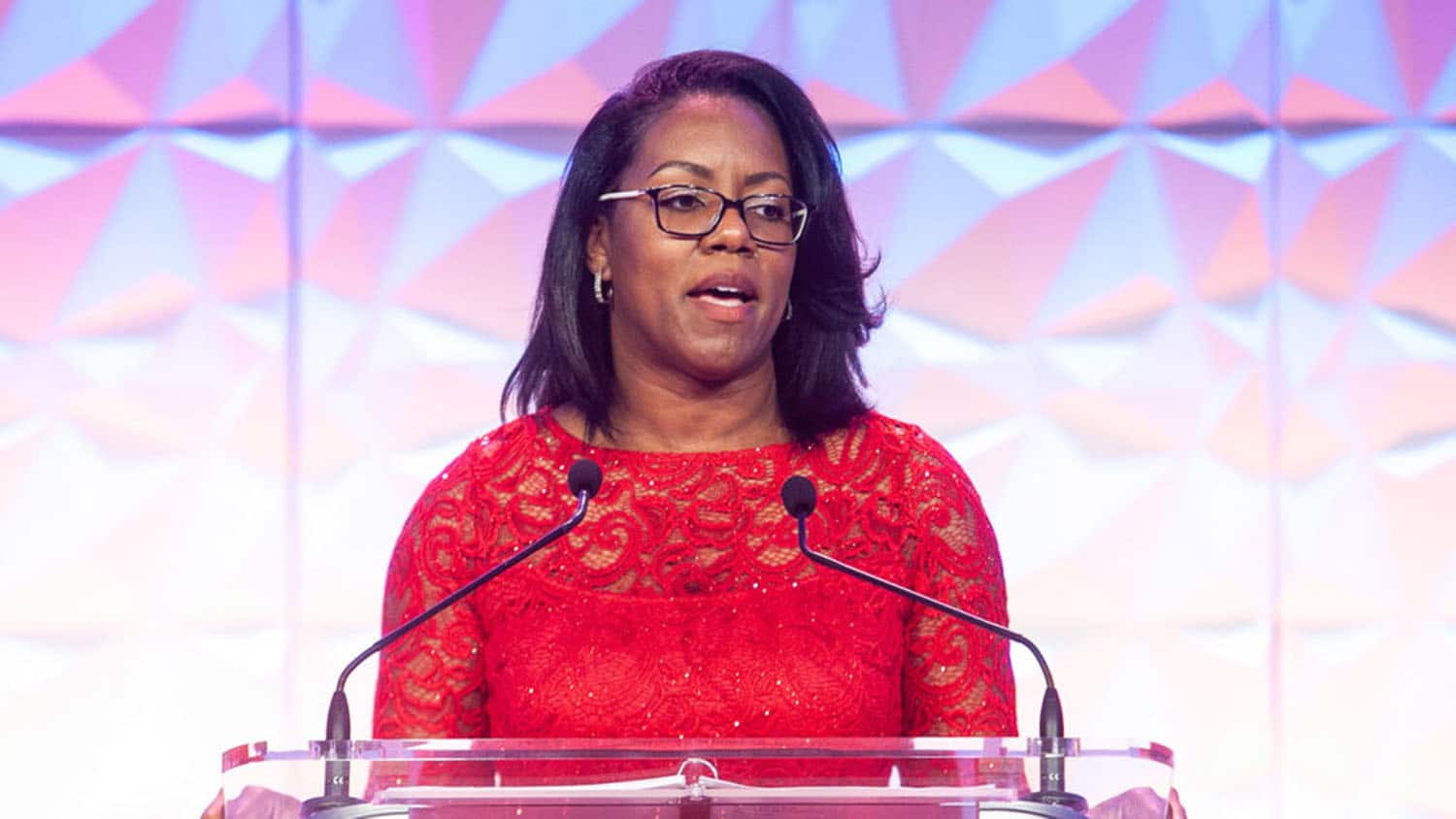
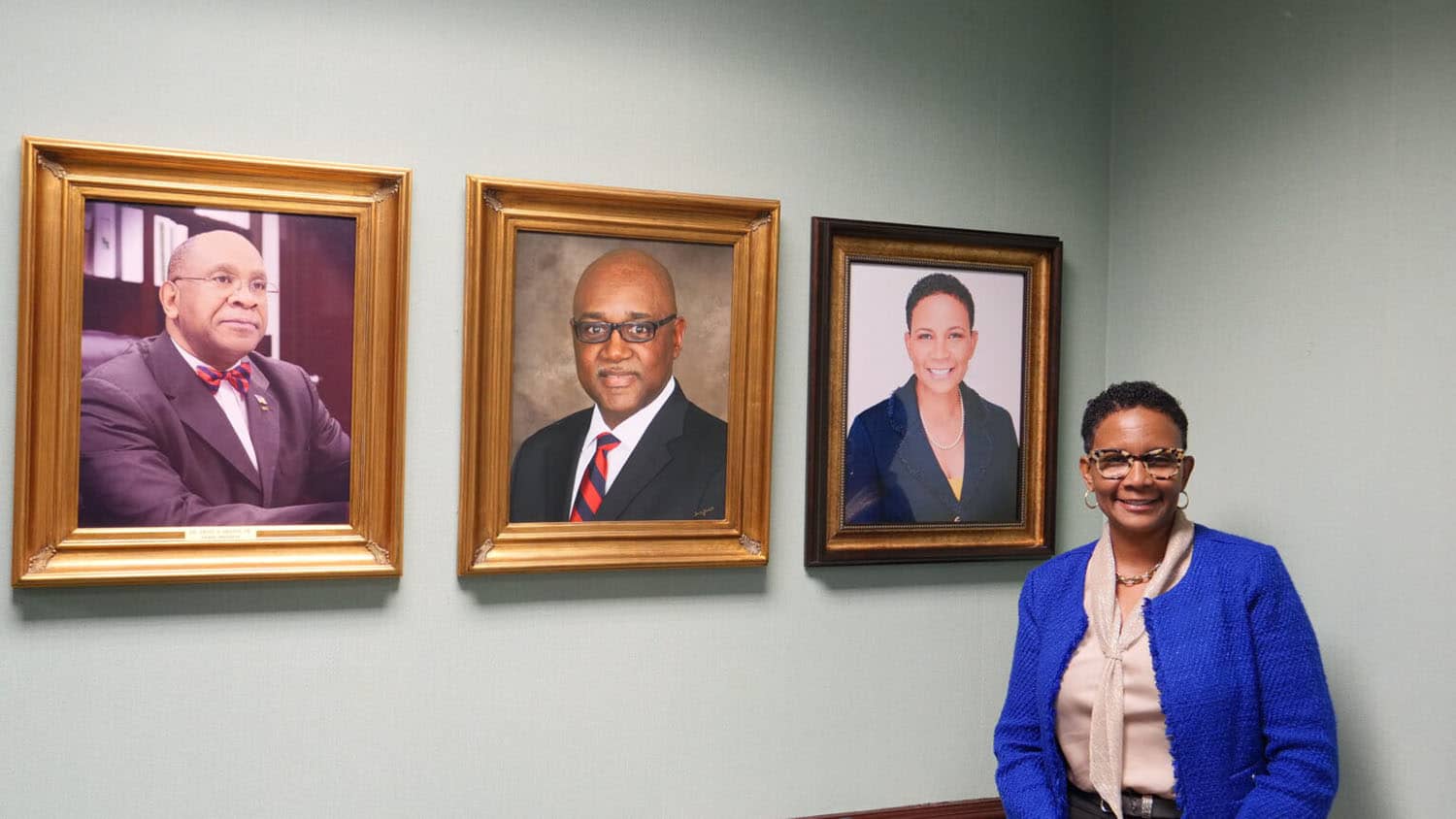
The center channels this mentorship to support changemakers continuing the work of building more accessible pathways to a community college education — such as leaders of colleges serving North Carolina’s rural communities. College leaders in these communities face unique challenges, including vast service areas, funding gaps and difficulties attracting faculty to specialized programs that match the career needs of local learners.
The Belk Center launched its Rural College Leaders Program in 2022 to equip leadership teams at these colleges with tools to advance more equitable outcomes for their students. The capacity-building initiative offers targeted support at 10 rural colleges to guide leaders in closing gaps in program completion rates for historically underserved populations, including low-income students and students of color.
It’s not about doing this work for them — it’s about sitting beside them and doing it with them.
“We’re really partnering with these rural colleges and helping them think about: how can they leverage their strengths to scale proven strategies; how can they work with other rural colleges or even suburban and urban colleges to partner on things like sharing adjunct professors,” said Cox, whose experiences at Wilkes gave him a firm grasp of rural college leadership. “It’s not about doing this work for them — it’s about sitting beside them and doing it with them.”
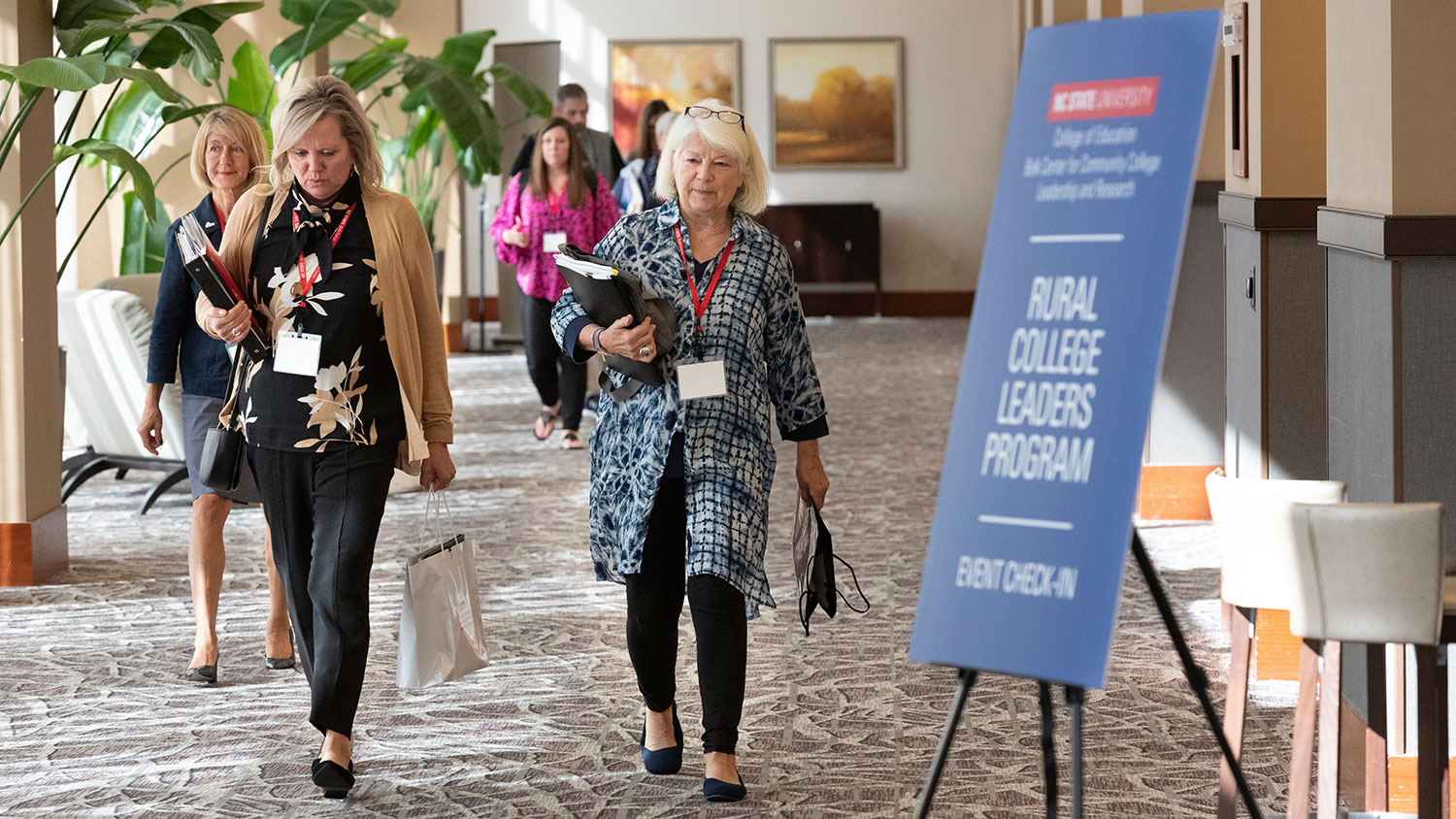
Cox and the N.C. Community College System recently hired the system’s first associate vice president of strategy and rural innovation to serve rural colleges statewide. This position, partially supported by the Belk Center, aims to extend strategies emerging from the Rural College Leaders Program and similar partnerships in rural schools throughout the state. The role reflects a larger calling, as work and education evolve, to continue partnering to create scalable solutions that support success across North Carolina’s community colleges.
“I think the model is changing toward education being more iterative and lifelong,” explained Cox. “You come, you get this degree, you start work, you change roles, you get a new certification or a new degree. Community colleges are in a unique position to complement universities and tailor programs, including transfer programs, community-by-community and company-by-company to meet the needs of today’s learners.”
The Belk Center and our partners — community colleges and their supporters — are in this together. We’re collaborating for the larger good.
In advancing educational and economic mobility for North Carolinians, community colleges have committed partners in the Belk Center, the College of Education and NC State.
“The Belk Center and our partners — community colleges and their supporters — are in this together,” said Jaeger. “We’re collaborating for the larger good.”
2,035 Adult Learners
enrolled in North Carolina community colleges as a result of NC Reconnect and related partnerships.
16 Community Colleges
in North Carolina have leveraged the Belk Center’s PACE Climate Survey to drive data-informed strategies.
1,406 Employees
from all 58 North Carolina community colleges participated in Teaching and Learning Hub events.
- Categories:


